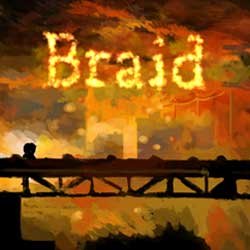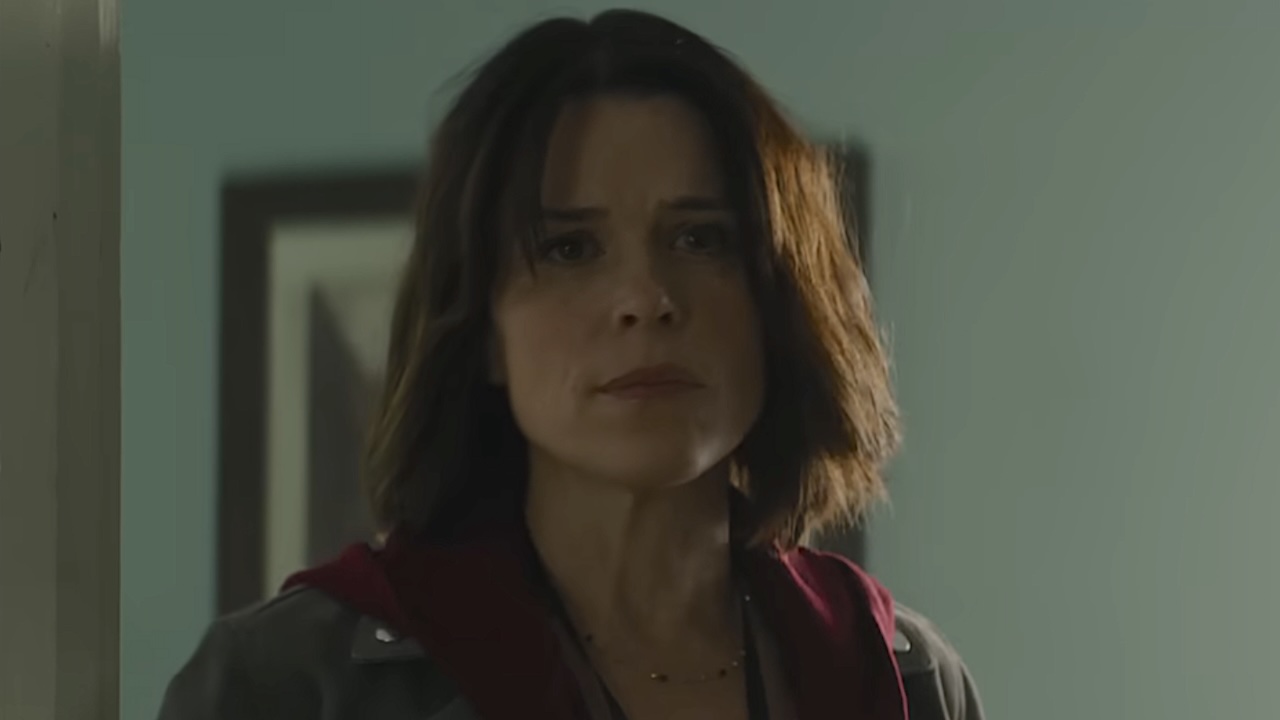
Your Daily Blend of Entertainment News
You are now subscribed
Your newsletter sign-up was successful
Players: 1
Price: $15 (1200 Microsoft Points)
Platform(s): Xbox Live Arcade
Developer: Number None, Inc.
Publisher: Microsoft Game Studios
ESRB: Everyone
Website: Braid
Your Daily Blend of Entertainment News
Rating:

I'm sure if you spend any time browsing game websites, you've run across several glowing reviews of Braid, the puzzle/platformer jumping game currently on sale on Xbox Live Arcade. If you're not familiar with the game, here's a quick run-down: you control Tim, a man trying to find a princess. You travel through distant lands and have to solve a variety of puzzles, primarily through use of Tim's ability to rewind time.
I don't want to spend too much time rehashing what other reviews have already discussed at length, though. What I want to do with this review is focus on answering the question many gamers have been asking: "Is Braid worth fifteen dollars?" I think the question, and Braid itself, really touch on some fundamental questions about what a player should expect from a game.
Braid's 1200 Microsoft Points price-tag is a source of controversy for some. For comparison, the vast majority of titles on Live Arcade are 400 or 800 Points. I imagine some gamers are simply uneasy that Braid's price is a sign that XBLA titles in general will gradually become more expensive. I can't say whether that's the case; all I can do is evaluate whether this particular game is worth the money. Personally, I think it is.
The principle argument against the game being worth fifteen dollars is that it's too short and has low replay value. After playing it through once, I admit that I'm not eager to pick it up again. Personally, there's not many games I do play more than once so maybe I'm not the person to judge this. I will say that the majority of puzzles are amazingly simple to solve after you've completed them once so a replay would only be enticing because of the "Speed Run" Achievement the game offers. Thus, at most, you'd probably only do two play-throughs.
The allegation that the game is "too short" sticks in my craw though. I'm not sure where this idea that a game must provide X amount of hours if it costs Y amount of dollars. It's impossible to come up with some sort of workable formula for that. For sixty dollars I can buy an RPG that takes forty hours to complete or a single-player only, first-person shooter that takes twenty. You wouldn't feel ripped off if the shooter was solid enough - I didn't come away from BioShock feeling disappointed. You might say, "Well, there's different length standards for different genres" but frankly there aren't many time puzzle side scrollers out there to compare Braid's length to.
After being burned in years past by thirty dollar expansion packs that add only a few hours of new gameplay to the original product, gamers have become intensely concerned with the length of every new title. It's used as a measurement of quality, which is just absurd. Grand Theft Auto 4's single-player campaign probably took me about thirty hours, while Call of Duty 4 took about six hours; I don't consider COD4's single-player experience fundamentally worse than GTA4 because of this. In the case of COD4, the short game length was advantageous: the story was tighter and the gameplay avoided unneccessary repetition. Is it more fun to make a player fight through five alleys instead of three?
But true, not all short games are better. Some are disappointing, unfulfilling messes that make you feel like you've been ripped off. The point is, the quantity of hours you spend on a game is a pointless consideration (to a point). It's the quality of the hours you've spent on the game that should matter. In that respect, Braid is a success. The game keeps throwing you curveballs and it demands your complete attention from start to finish. As soon as you get a handle on puzzles that require you to simply rewind time, the next level is sprinkled with enemies and obstacles that aren't affected by the rewind. As soon as you learn how to deal with that additional wrinkle, you enter a level in which time rewinds or moves forward depending on whether you move left or right.
The point is, the game actively engages you and a lot of games don't do that. What I mean is that a lot of games have a very familiar routine from start to finish and we gamers sort of autopilot our way through them. As you progress through typical games, the enemies will gradually take more bullets to kill and you'll have to learn how to double-jump but that's the extent of the gameplay evolution. Generally the same tricks that worked on the first level will work on the last level. Not so with Braid - you have to think of a new trick for nearly every puzzle. I just can't think of many games whose basic mechanics shift as frequently or deeply as they do in Braid.
That's not to say that this game is perfect. The flip-side of having a rewind button is that you're going to need it constantly. You solve the puzzles through a lot of trial and error and that means you die a lot. A lot, lot. It can get fairly frustrating, especially with a few puzzles that rely heavily on chance. While it's short enough to finish in one long sitting, I'd recommend against it because eventually your brain will feel pretty fried and you'll just try to kamikaze the puzzles. Those of you who aren't interested in the plot of the game will be relieved to hear that the storytelling is completely optional. Basically, once you enter each segment of the game for the first time, there's a series of books lined up which you can read to learn that back-story. It's maybe a page worth of reading for each game segment. If you're not interested in reading, you can just race past the books and jump right into the puzzles. While that's convenient for you plot-haters out there, I would've liked it if somehow the story-telling was blended into the game itself more. Maybe the books could've been spread throughout the levels themselves?
Still, on the whole, I enjoyed the game a lot for someone who doesn't really like puzzles or platform jumpers. The fact that Braid has a storyline (albeit a very subdued, ambiguous one) makes it more palatable to me than the mindless pursuit of high scores found in many other puzzle games. Furthermore, Braid doesn't rely on quick reflexes as much as other platform jumpers. You won't fall in a lava pit and have to restart the level; it's just a matter of rewinding a couple seconds to before you made the jump.
Portal, a darkly humorous puzzle first-person shooter is much different than an emo puzzle side-scroller but it's the only game I can think of that reminds me of Braid. I'm not going to go so far as to say Braid is as good as Portal but both are extremely gripping games filled with smart, innovative gameplay. Neither game will take many hours to complete but those few hours are dense and gratifying.
Staff Writer at CinemaBlend.

